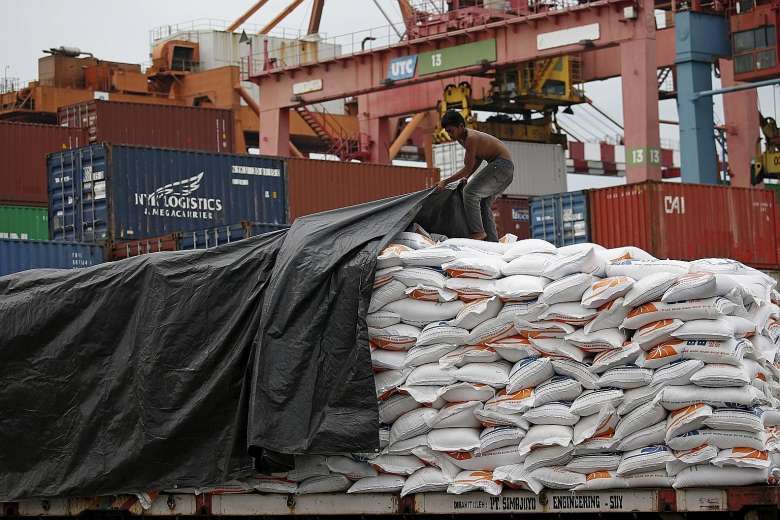Asean to gain competitive edge as one community: ST survey
Asean will be more competitive once the Asean Economic Community (AEC) is a reality, going by a new regionwide poll.
Businesses will do better, work opportunities will grow and lives will improve, according to the survey, which was conducted by The Straits Times and covered the 10 Asean nations.
Many respondents expect to travel a lot more in the coming years.
If the AEC is regarded as a single market of 625 million, it has the potential to be the world’s fourth-largest economy, after the European Union, the United States and China, some experts say.
The AEC kept a fairly low profile in the planning stages, but expectations are now growing about the benefits of being part of an economic community, as the crucial date of Dec 31 nears – marking the official formation of the community.
Yet, the poll results show that people within the region remain circumspect about the gains made so far and sceptical about how fast matters can progress on regional integration, given current realities.
Asean was formed in 1967 with five member nations – driven in no small part by fears over the spread of communism. One key goal from the start was to promote economic growth among member states.
The AEC aims to take Asean integration – which has already seen steps such as encouraging regional countries to grant visa-free travel to Asean citizens – to a new level.
In the poll, few responded with a “yes” to whether Asean is close to becoming a community.
A significant majority acknowledged that it is difficult to do business in the region.
And close to half said people’s mindsets will be a challenge in bringing the region closer together, attaching far more importance to this factor rather than rules and legislation in the region.
The Straits Times embarked on this poll on Oct 20 to gauge sentiment across Asean as the region nears this historic moment.
ST was supported by all the English Asean papers of the Asia News Network, a grouping of 22 newspapers seeking to promote coverage of Asian affairs.
Responses surged in from Malaysia and the Philippines in the first few weeks after the poll’s launch, while it took longer to get the minimum number of 80 responses per country – for a credible sample – from Singapore, Indonesia and Thailand.
No reward was offered for joining the poll. It was closed on Dec 9, after 50 days online.
Only Asean citizens could participate. Responses came from all over the world and language issues likely prevented more responses to the straw poll from the remaining Asean countries.
Said Mr Ong Keng Yong, Singapore’s Ambassador-at-Large: “The result of the poll clearly shows that there is general acceptance that working together as 10 countries will yield a better outcome for everyone in Asean.
“Unfortunately, there is still insufficient awareness of how the 10 countries can operate the Asean Community into a regional system which provides benefits for the Asean citizens.”
The establishment of the overarching Asean Community concept for the region was agreed to by regional leaders in 2003. It will have three pillars – the AEC, the Political-Security Community and the Socio-Cultural Community. The Asean Community’s establishment will be declared formal on Dec 31.
For Dr Ooi Kee Beng, deputy director of the Iseas-Yusof Ishak Institute, the poll results show that Asean businessmen are very supportive of regional integration.
“But their hope that it will succeed is much stronger than the expectation they have that it will succeed, at least in the short term.”
In the works for several years, the AEC is expected to spur trade and boost economies, with governments having already agreed to the lowering of tariff as well as non-tariff barriers.
Connectivity is also set to get a boost, with industries to be integrated across various countries and free movement of goods, services, investment and skilled labour and freer flow of capital to be encouraged.
Here are some of the key findings of the poll, which 655 people took:
- Over 75 per cent of the respondents say Asean will become more competitive globally after the AEC is a reality.
- Slightly more than half expect business to improve.
- Half of those polled are certain that life will be better.
- Two-thirds expect work or travel to rise in the next three years.
- Only a quarter of the respondents believe that Asean is close to becoming a community. More than one-third are clear that it is not close to being a community while the remaining are uncertain.
Among other findings of the survey: Close to two-thirds of those who took the poll already identify with their peers in the region, although the majority agree that people in the region do not share a common identity.
The survey was hosted and promoted by The Straits Times as well as journalists from these newspapers: The Star (Malaysia), Philippine Daily Inquirer (the Philippines), The Jakarta Post (Indonesia), The Nation (Thailand), Viet Nam News (Vietnam), Vientiane Times (Laos), Rasmei Kampuchea Daily (Cambodia), the Eleven Media Group (Myanmar) and The Brunei Times (Brunei).


 Thailand
Thailand




